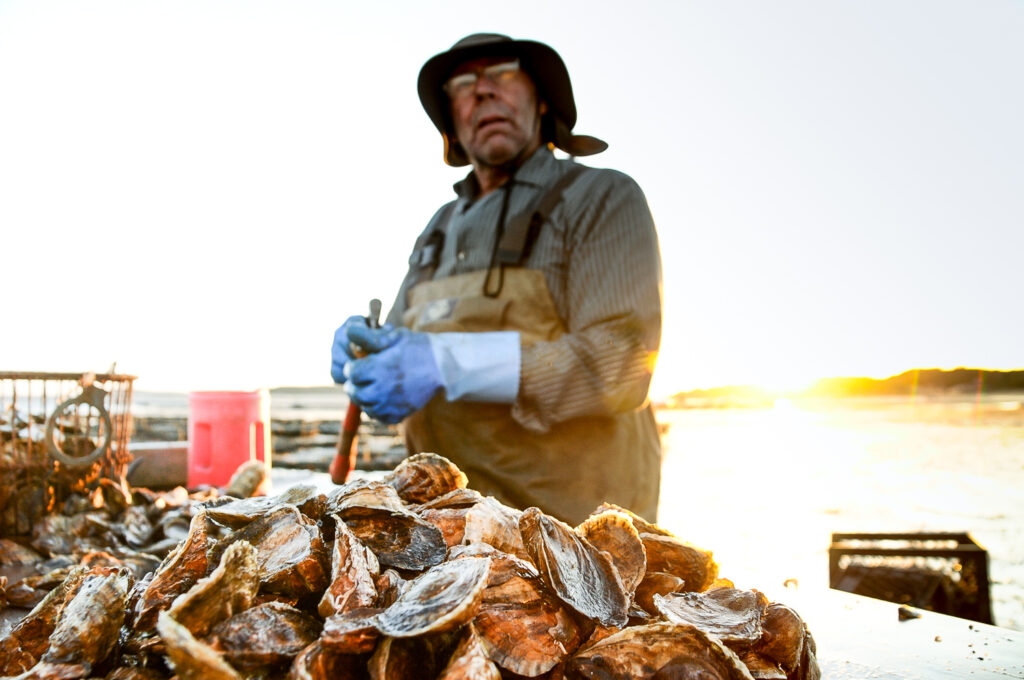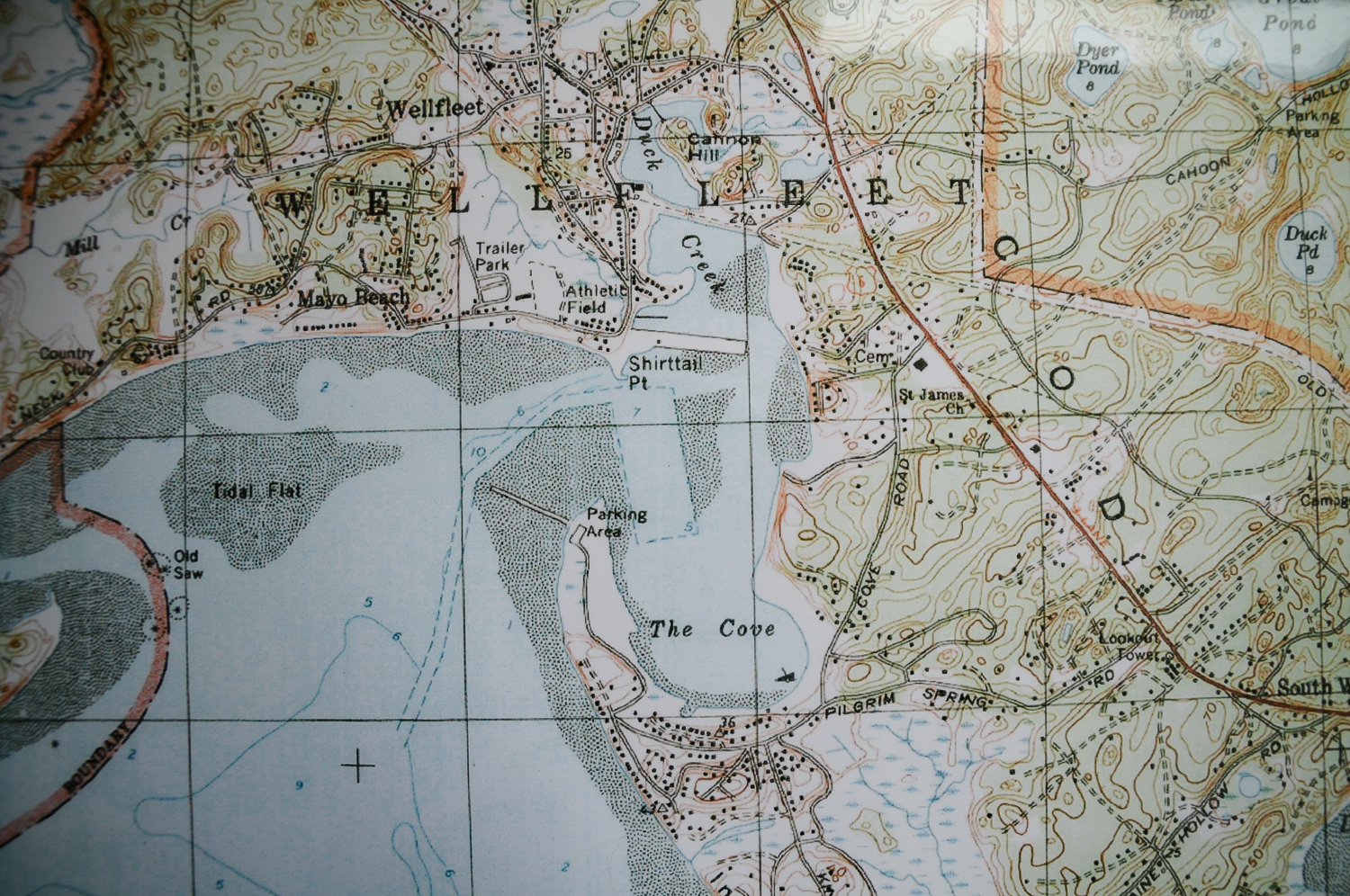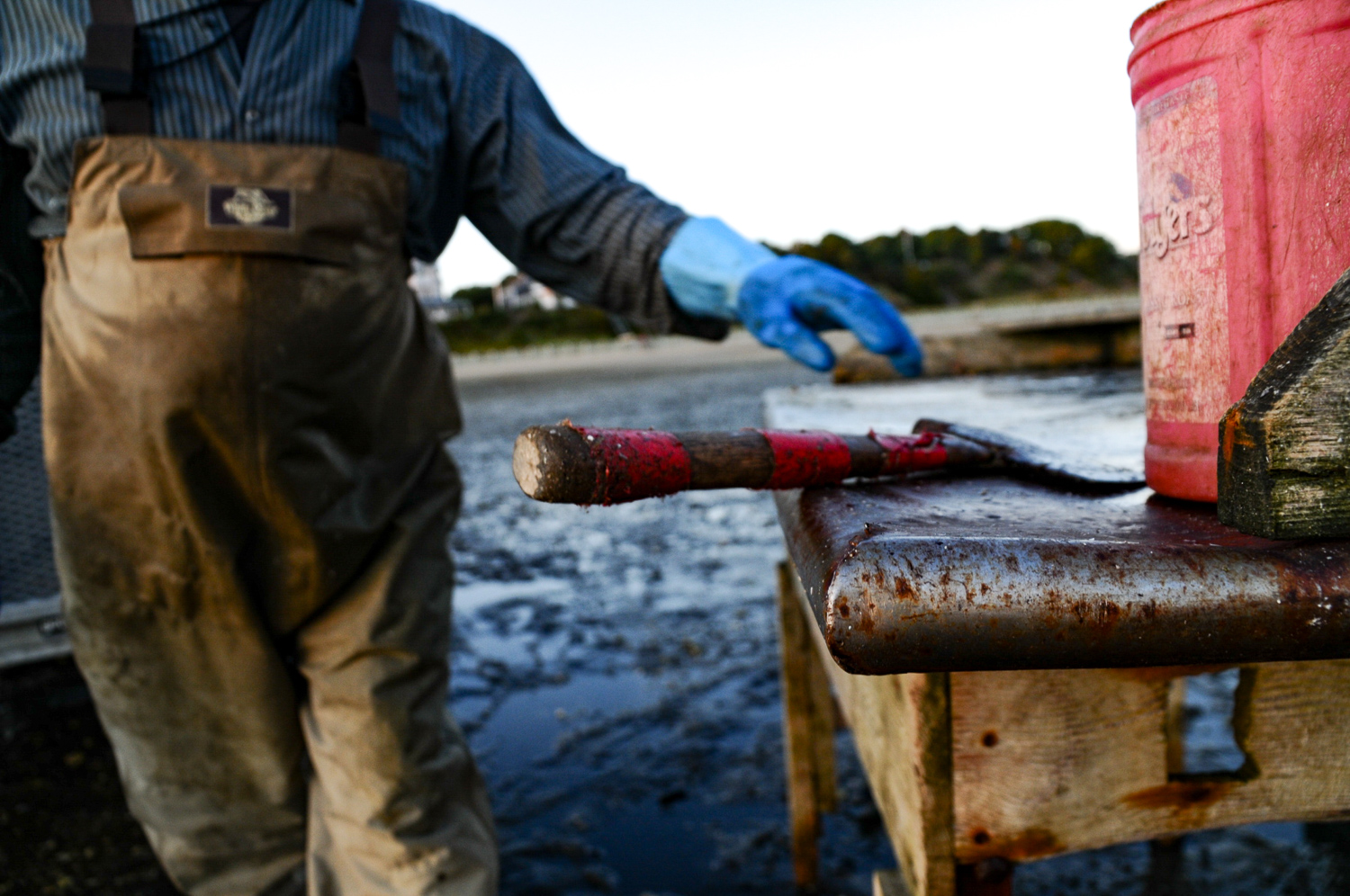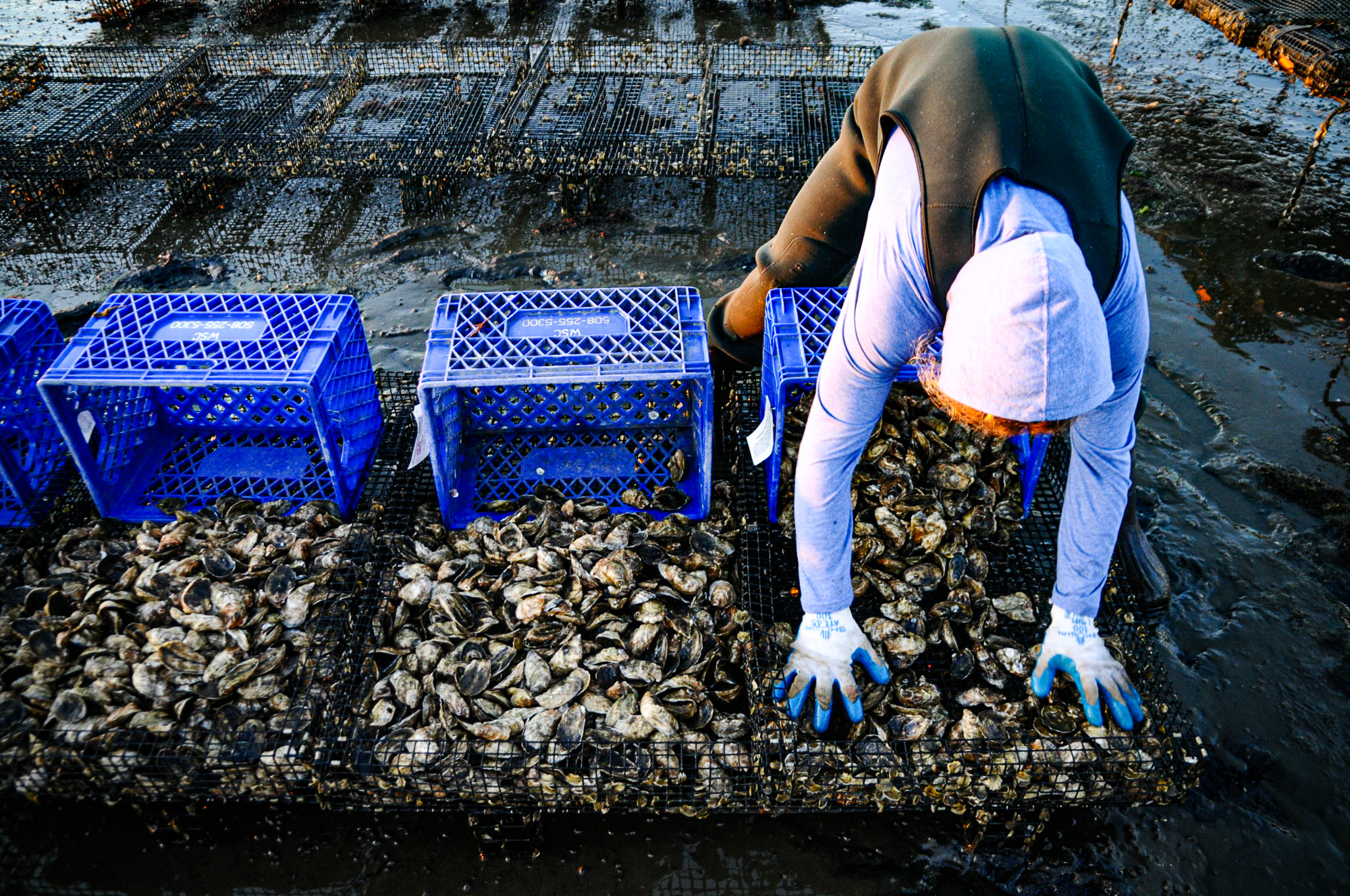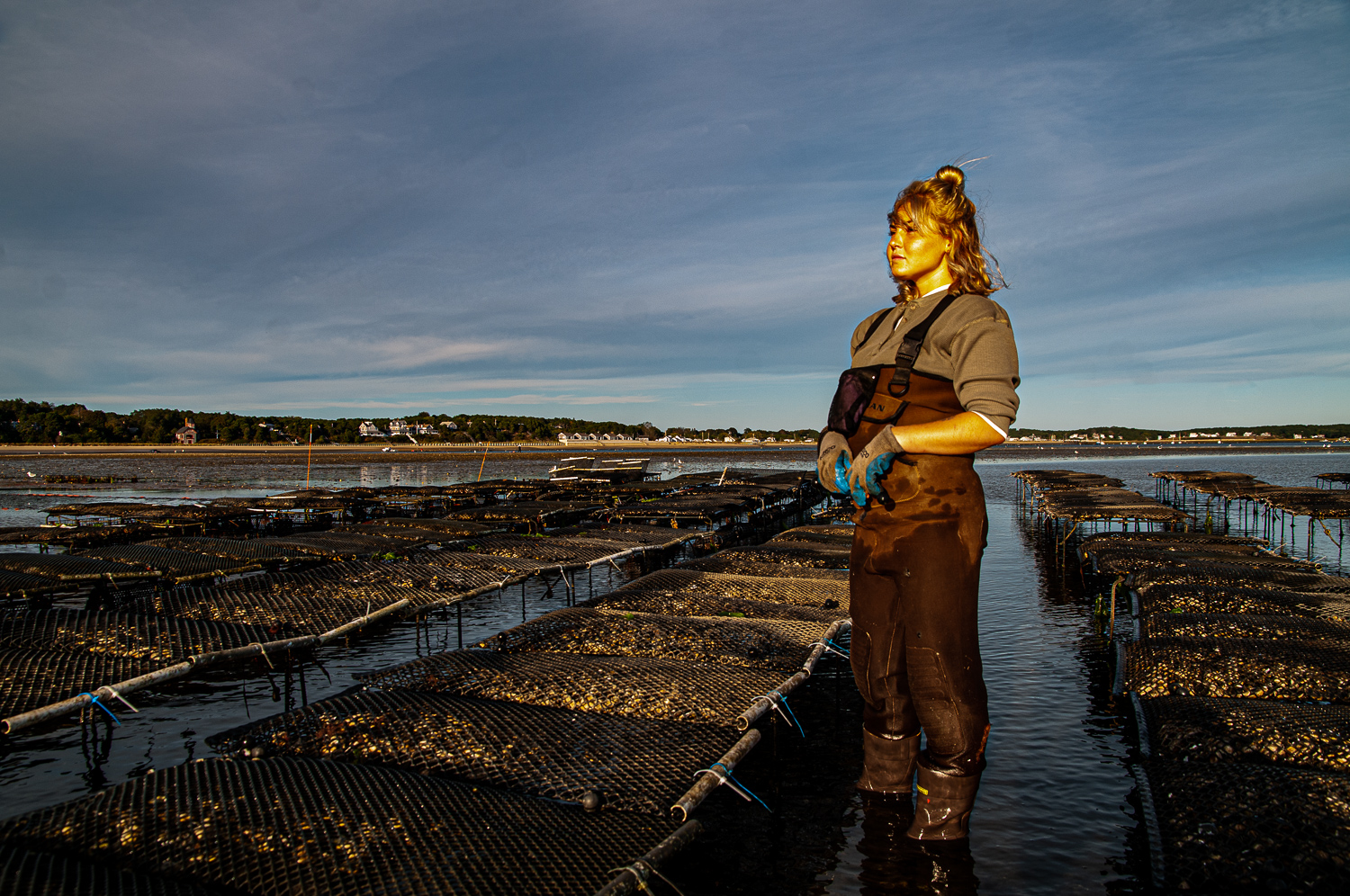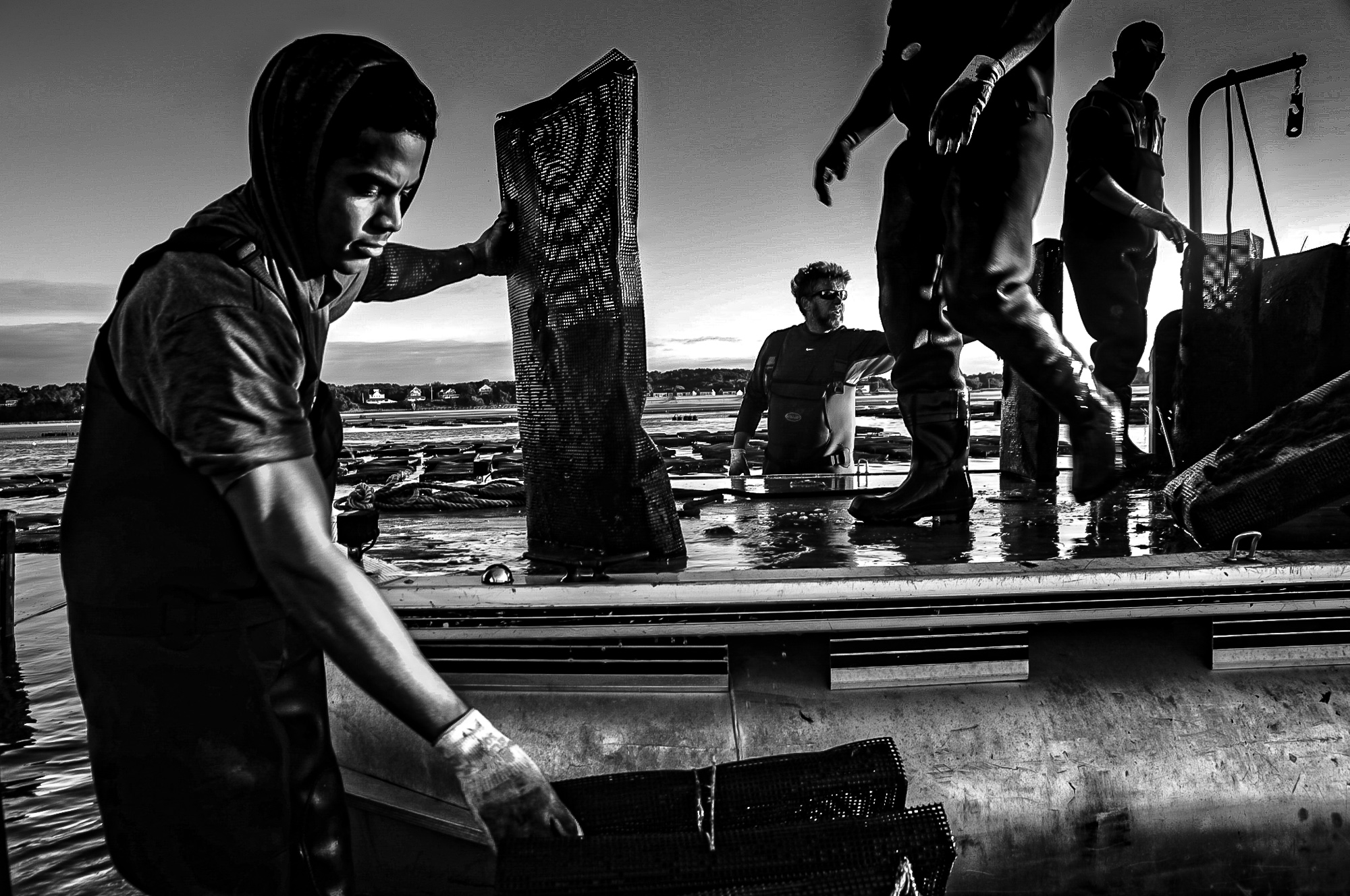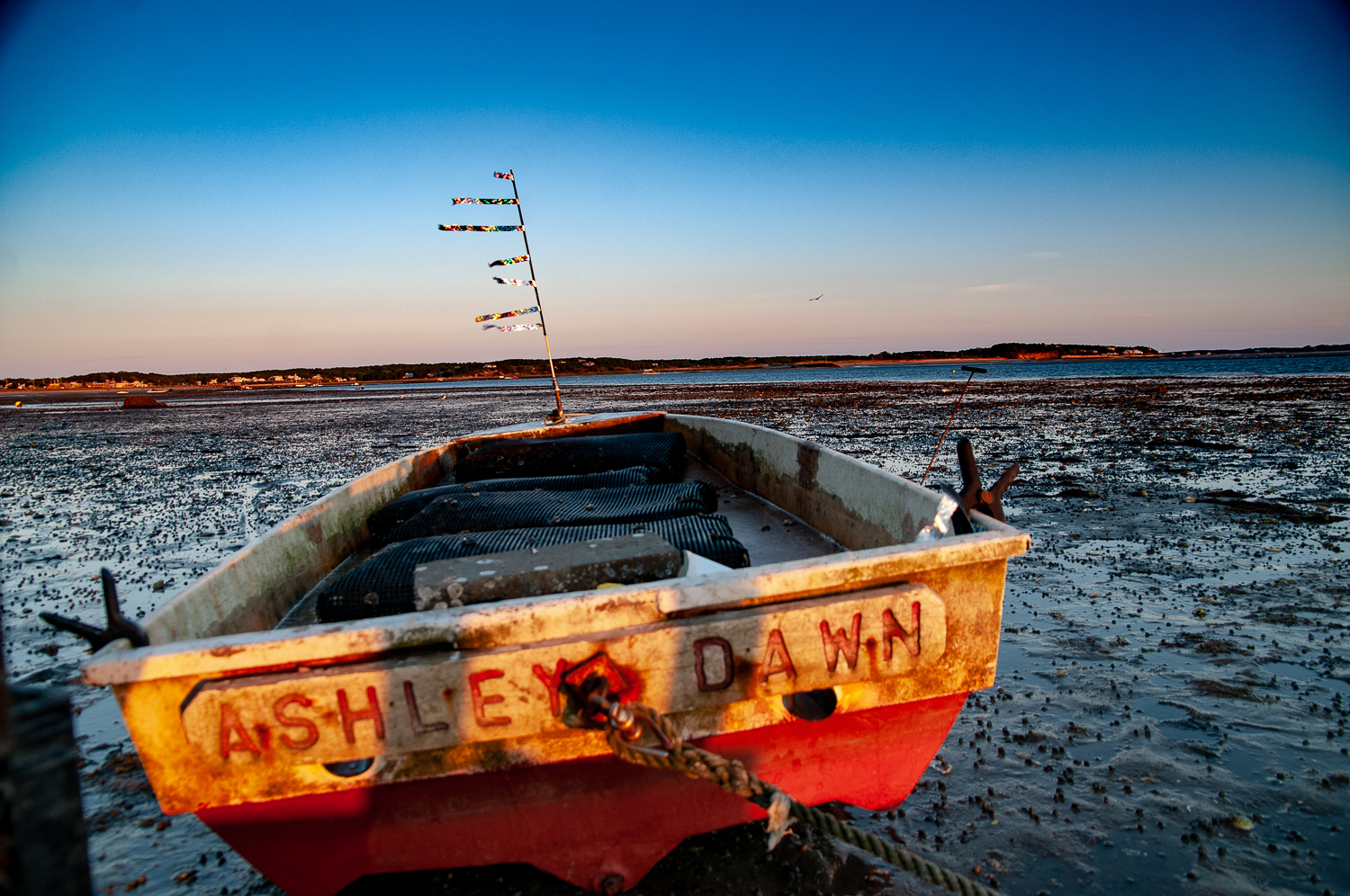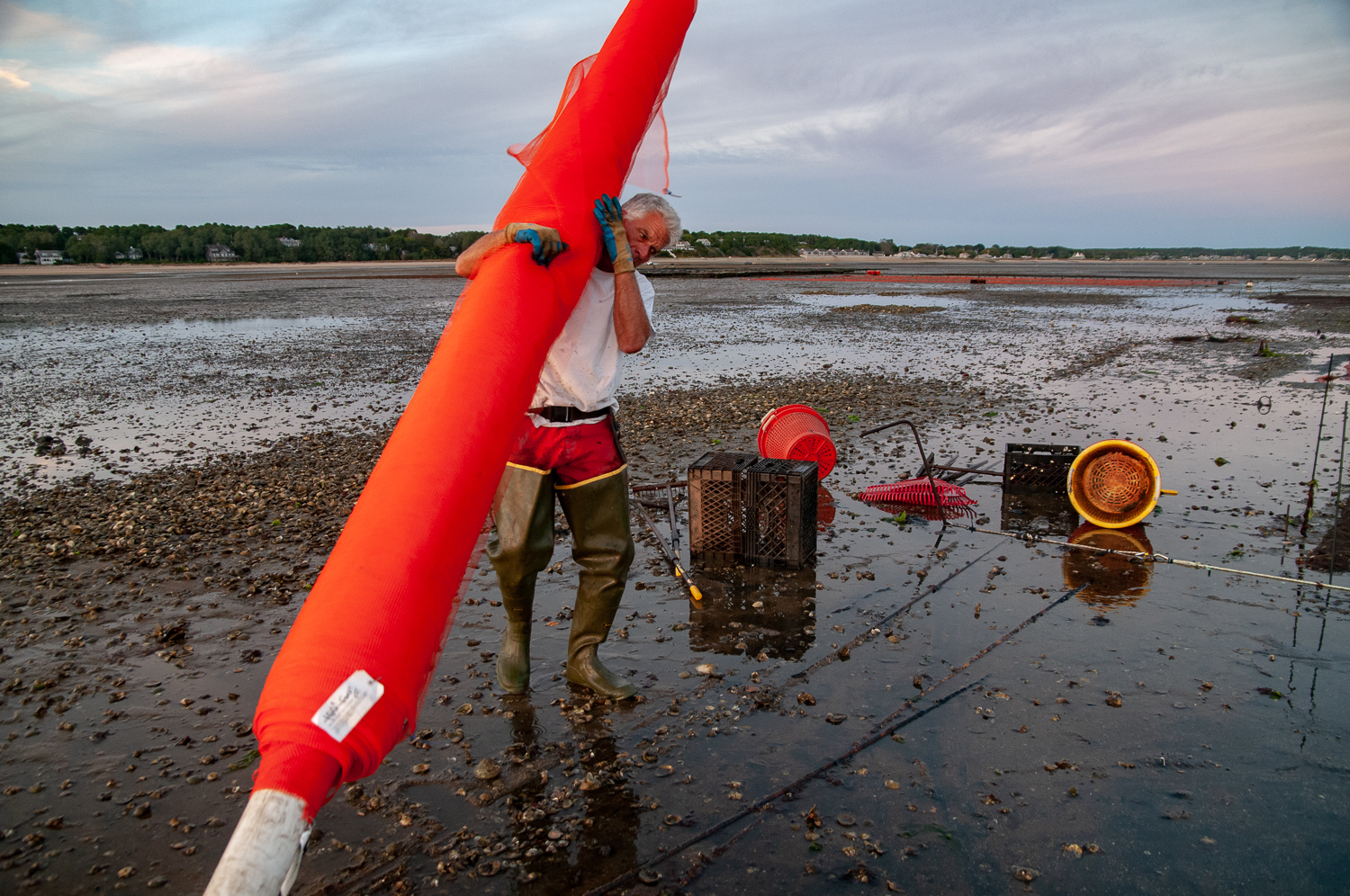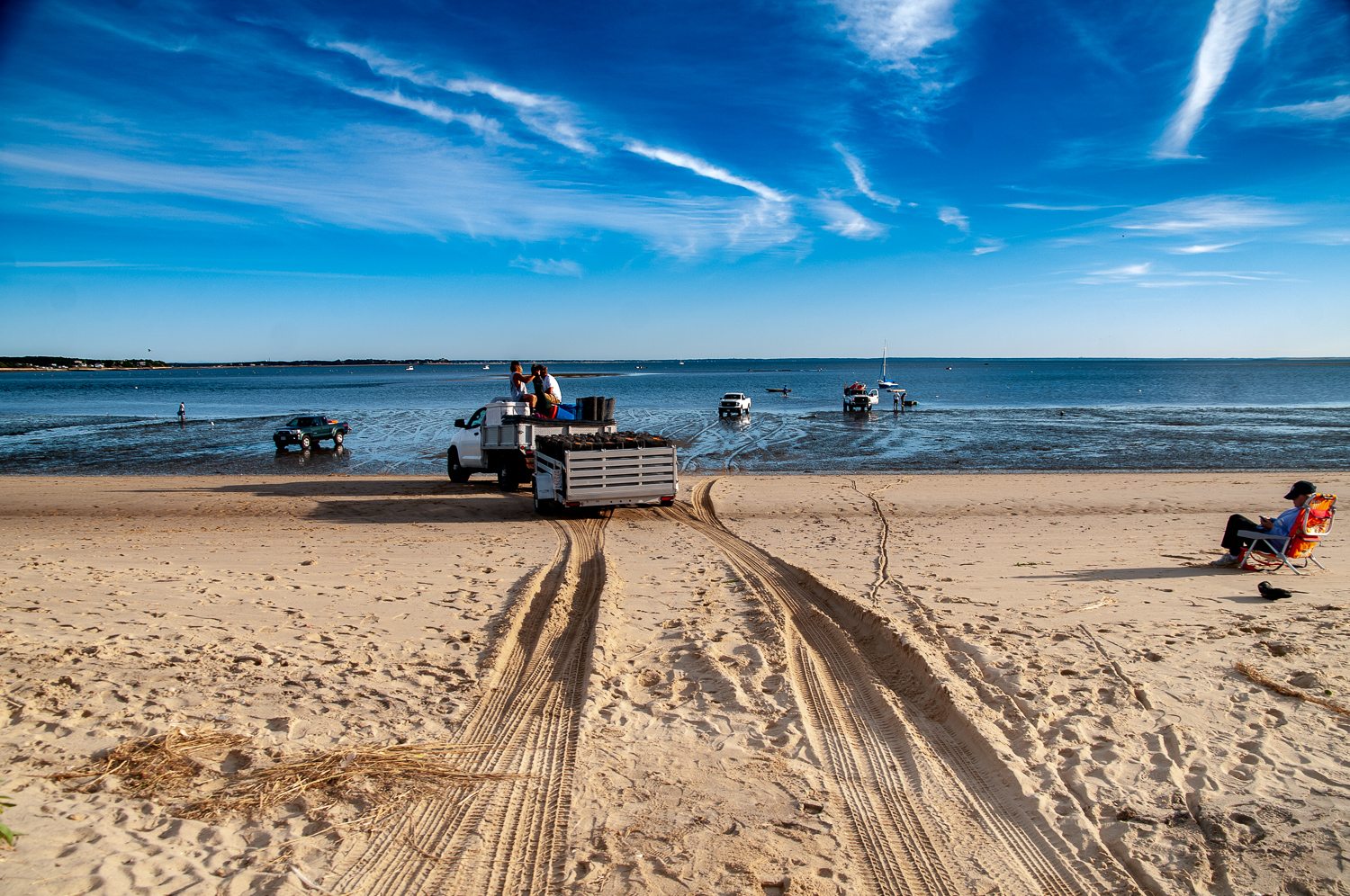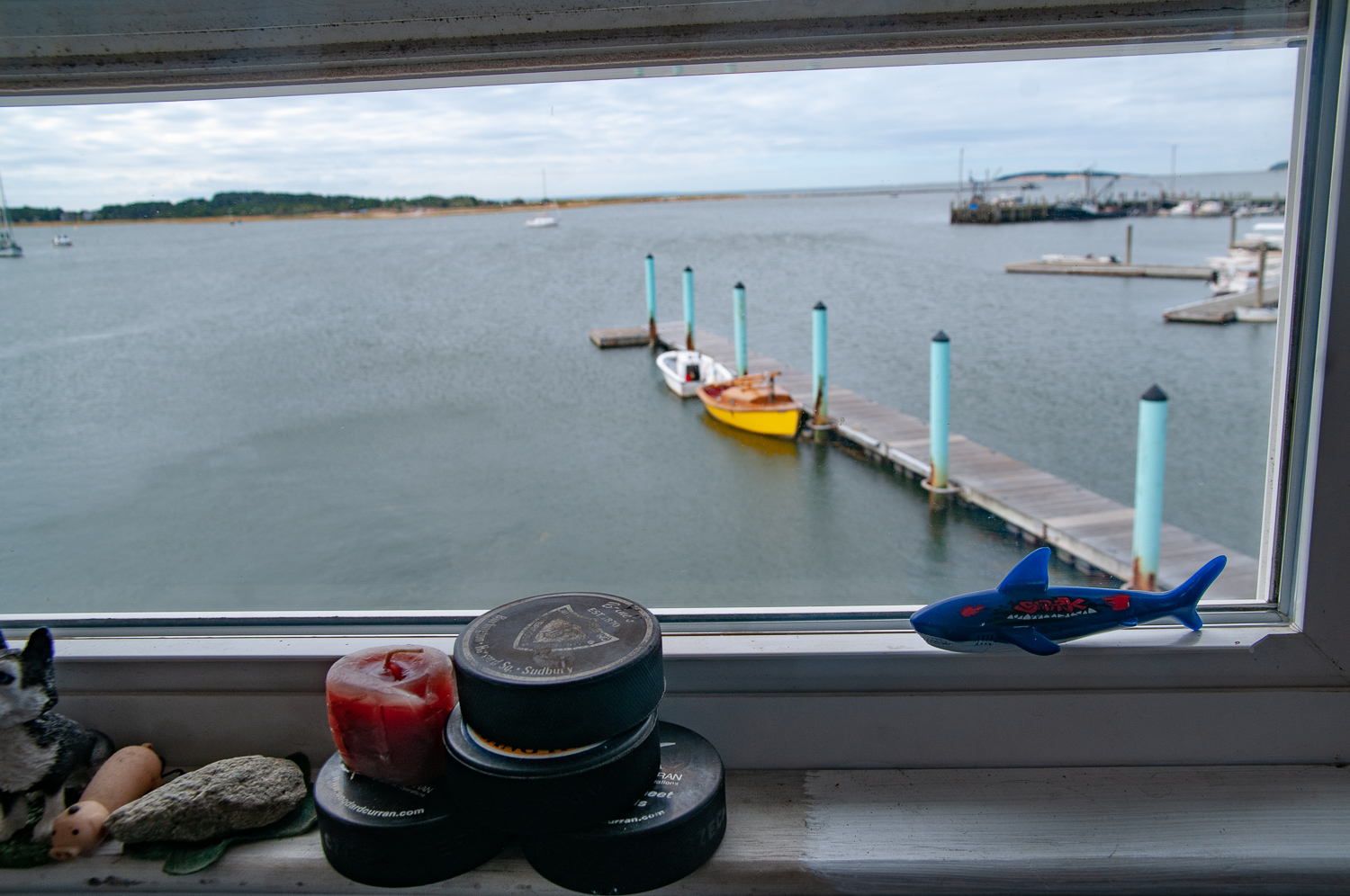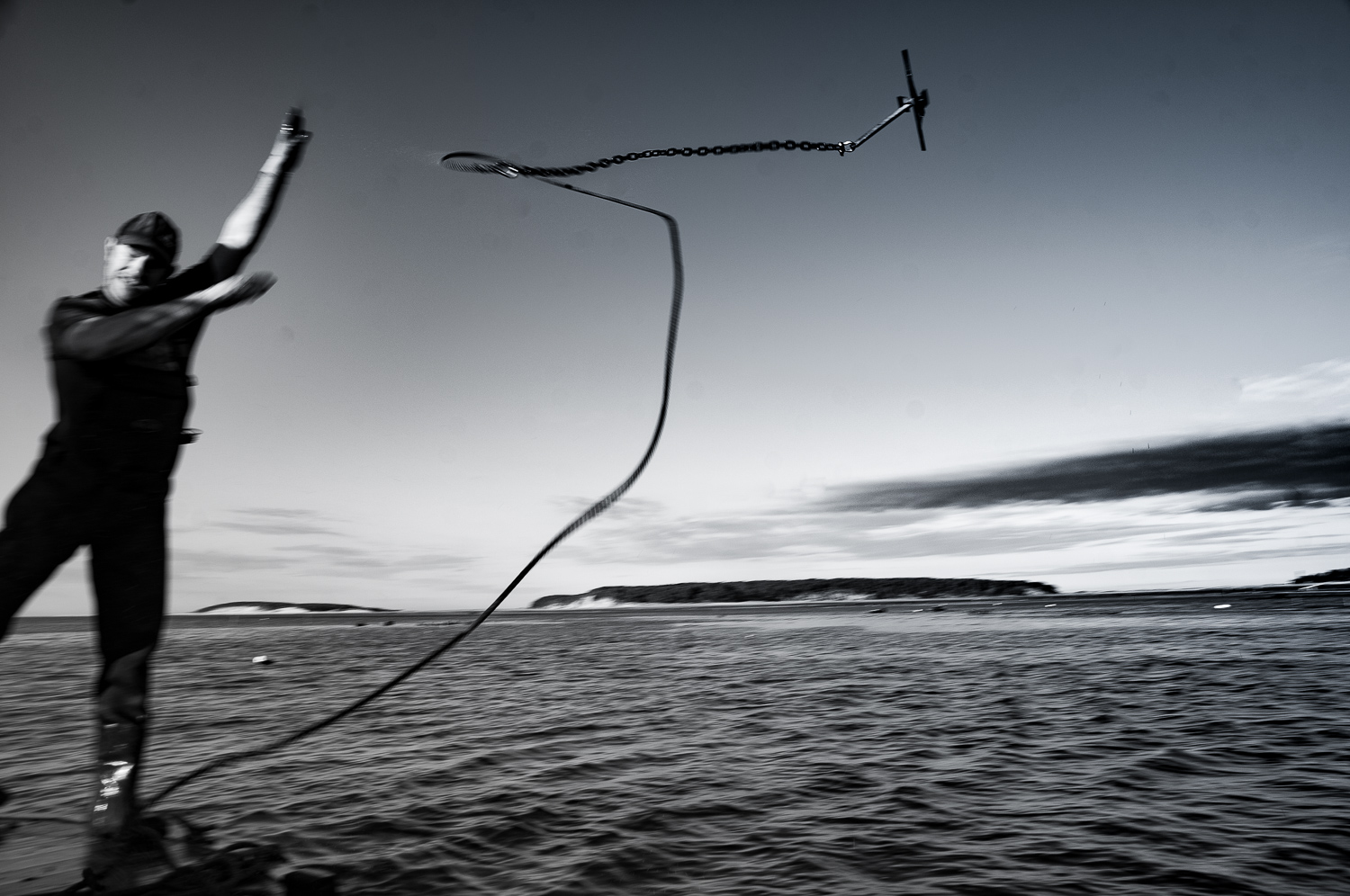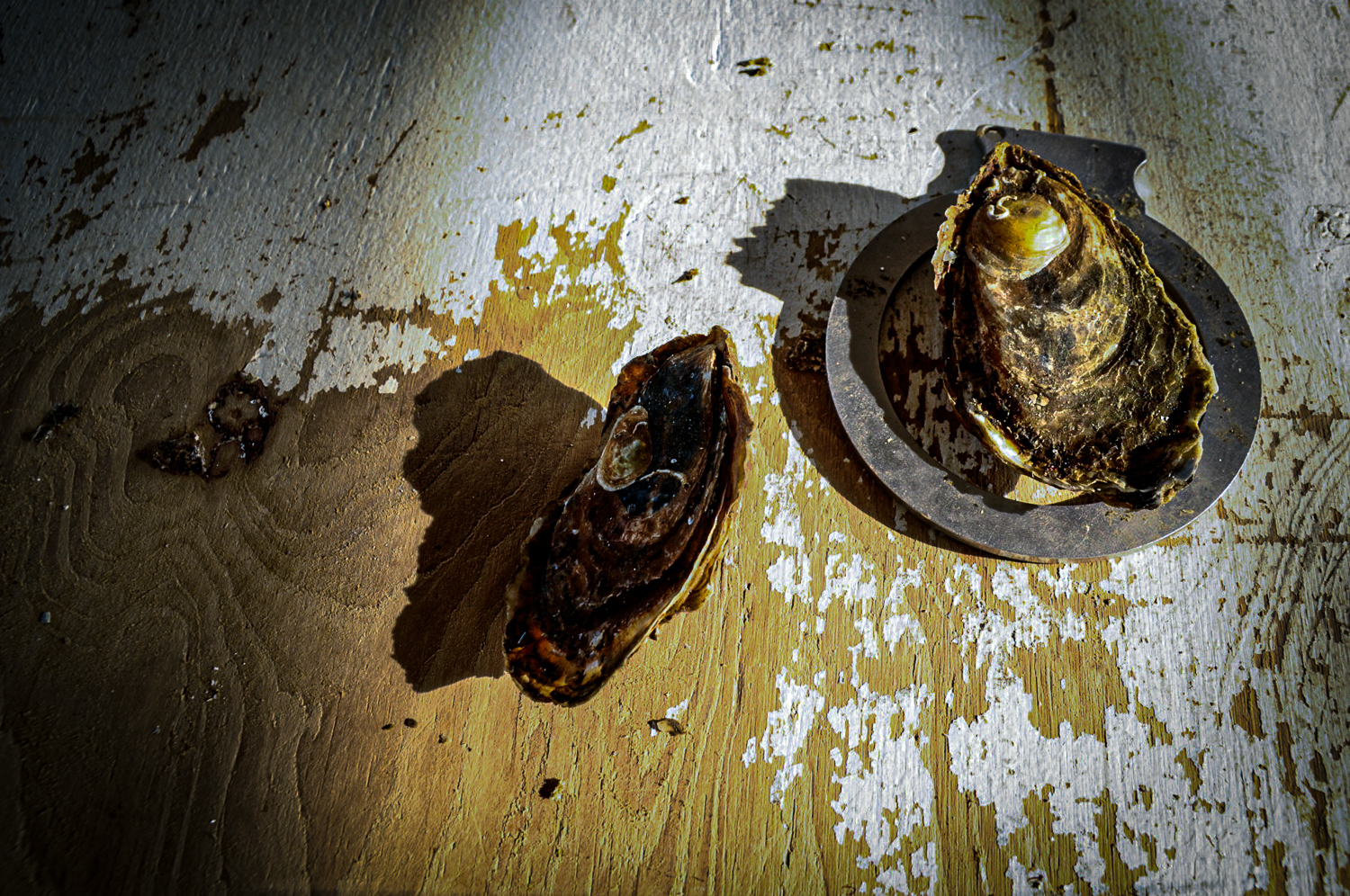I began this project one sunny summer day when I was out with my son (6) on the beach. I walked over to see what these guys who drove their vehicles down onto the beach at low tide were doing, and that’s when I met Jim Rose—the first oyster farmer I spoke with. There was something special about Jim Rose that really touched my soul, and as I began to meet other oyster and clam farmers I realized it was something they all seemed to have in common. Some kind of true grit, a wild affiliation with the wild sea. I suppose this is an ongoing long term project, though it remains to be seen what affect the tragic COVID-19 scare will have on the lives and industry of these people, and their beloved Cape Cod seashore. By April, 2020, the industry had collapsed, and middle-and large-sized farms—and farmers—are struggling to survive like never before.
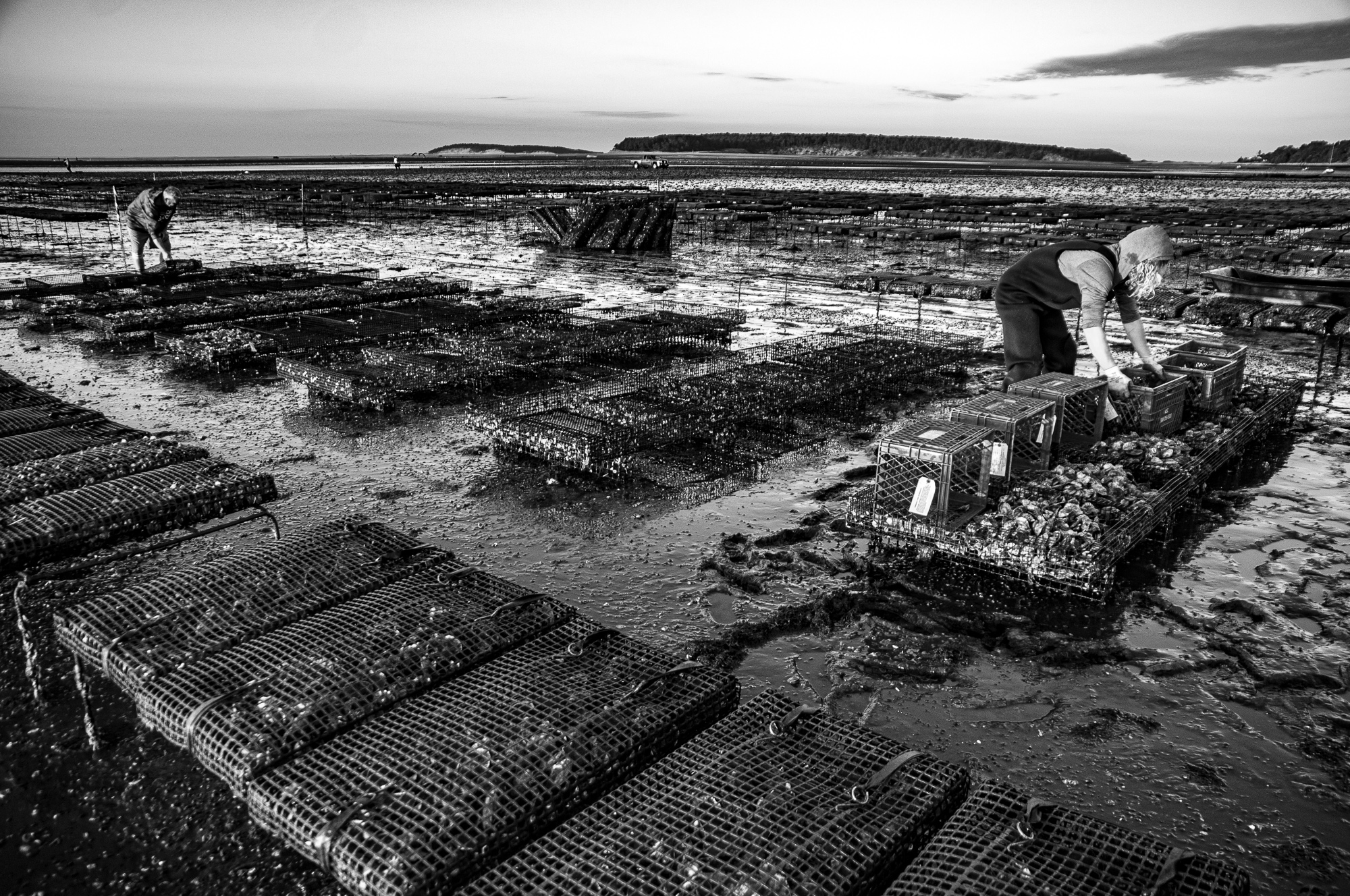
A Tide of Uncertainty: Shellfish Farming in Wellfleet
Wellfleet, Cape Cod, Massachusetts
James Rose works his oyster grant on a warm sunny afternoon in late September 2019. James “Jimmy” Rose runs the family business, Rose Shellfish Company, and he’s been working the same flat on Mayo beach since 1988.”My name’s Jim Rose. I been here for 38 years, maybe 39, leasing this grant right here. I been fishing since I was old enough to walk. My parents used to give me the [oyster] juice when I was six months old, because I couldn’t chew yet, but they’d eat the oyster and give me the juice and this is what I ended up doing because of that, I’d say. My grandfather was a shellfisherman his whole life and my family all went down here on the flats when we were grow’in up. It was a way of life: that’s how we ate. We live in a beautiful spot here, Wellfleet, Cape Cod, Massachusetts.”
A nautical topographic map of the Wellfleet bay areas lays spread over a table at the Wellfleet harbormaster’s office. Many of the photographs in this exhibit are focused on the area seen on the map named Mayo Beach and the areas to the left of that (where a small piece of Egg Island can be seen). Wellfleet is located in Barnstable County, Massachusetts, halfway between the ‘tip’ and ‘elbow’ of Cape Cod. Prior to 2020, the population of 2,750 (2010 census) would swell to nearly sixfold during the summer. After the COVID-19 scare began, thousands of New Yorkers and Bostonians fled the city for summer residences on the Cape.
Wild pickers, freelance shellfishers
Wash-Ashore employee Jay Pawa works crating oysters to send to the 2019 market. With the coming of COVID-19 in 2020, the market crashed: restaurants closed, wholesalers stopped buying, the global distribution system collapsed. Ninety percent of oyster sales occurred through restaurants, at raw bars and table service. “People don’t eat oysters alone,” Andrew Cummings says, 28 April 2020, “they eat them in groups, at restaurants, and all the restaurants and stores are closed.”
A newby to the oyster farming world, Emily Arnold (24) pauses to reflect on the fantastic seascape of Wellfleet while working on her boss Nick Sirucek’s grant in September 2019. Emily says she gave up the 9-to-5 grind because she wanted to be outdoors. When not working oysters and in the off-season Emily worked at a small cafe (until COVID) on the Cape. Before COVID, she planned to apply for her own wild oyster picking license.
“I also am now beginning the wild [oyster] picking and plan to continue a sustainable and caring work practice with that as long as I have a soul,” she says. “Like a lot of individuals on Cape I think you’ll find we have given up the soul draining routine for something of more long term beauty that will quench the soul.”
April, 2020, the cafe Emily Arnold worked for is closed due to COVID. “I did get my wild picking license,” Emily Arnold reports, in early May. “I have not been out yet but I hope to in the next week or so. All is well. Just living a very quiet simple life of solitude.”





